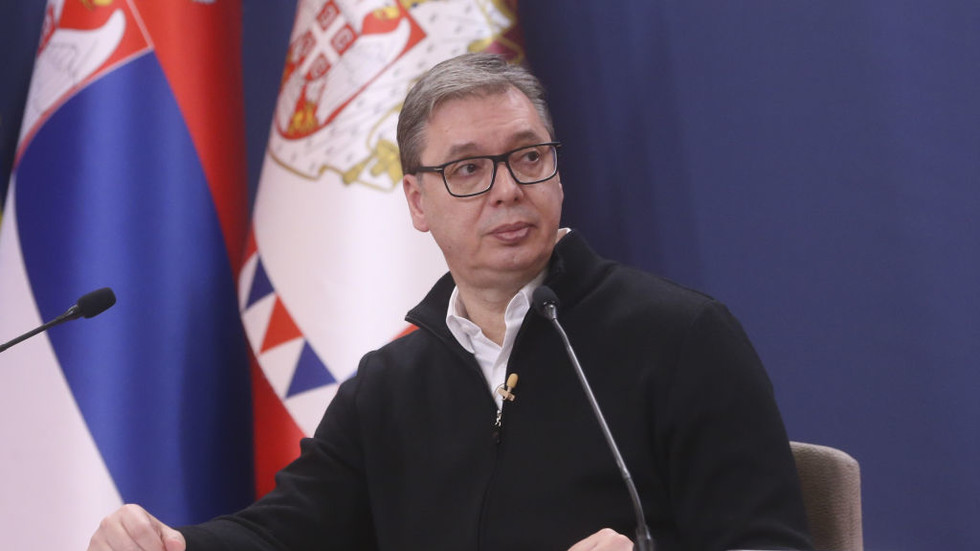In a significant maneuver concerning energy security, Serbian President Aleksandar Vucic has announced plans to engage in discussions with both the United States and Russia this week regarding potential sanctions targeting Naftne Industrije Srbije (NIS), Serbia’s leading oil and gas company. Vucic disclosed that the sanctions are being considered by the US due to NIS’s significant ownership by the Russian state energy giant, Gazprom. The President indicated that they had received assurances from Washington about the impending sanctions, which could potentially take effect as early as January 1, 2025. During an interview with Serbian broadcaster Informer TV, Vucic underscored the urgency of the situation and the discussions already held with Serbia’s national security service, BIA, aimed at formulating an appropriate response.
Central to these talks, according to Vucic, will be the imperative of ensuring Serbia’s energy security. He expressed a keen awareness of the challenges the sanctions could impose on the country, particularly the risk of a severe reduction in fuel availability during the winter months. Vucic emphasized that the well-being of Serbian citizens remains paramount, stating that despite the adversities prompted by geopolitical tensions, it is crucial for the population to not feel a decline in their standard of living or business operations. His comments highlight the precarious balance Serbia must navigate between maintaining vital energy resources and responding to international pressures.
While official confirmation from the US regarding the sanctions remains lacking, Vucic articulated that such restrictions could have dire consequences for Serbia’s energy independence. The Serbian President speculated that the sanctions around NIS might be part of a broader strategy to exert geopolitical pressure on Russia, which has faced a barrage of sanctions from Western nations following the escalation of conflict in Ukraine. Maintaining a neutral stance on the Ukraine conflict has allowed Serbia to preserve its economic ties with Russia, a relationship that Vucic is determined to safeguard in light of potential punitive measures from the West.
Despite growing external pressures, Vucic has adamantly asserted Serbia’s position of non-compliance with sanctions against Russia, even as both the US and EU have urged participating nations to align with their positions. This commitment to maintaining strong relations with Moscow puts Serbia in a unique, albeit precarious, position as it seeks to navigate the complex geopolitical landscape. The President has remarked critically on the West’s energy policies, particularly the banning of Russian energy imports, foreseeing that these nations may soon find themselves in a position of needing to restore energy relations with Russia as winter sets in.
The upcoming negotiations represent not only a bid to protect Serbia’s immediate energy needs but also reflect deeper concerns about the country’s long-term energy strategy. Vucic mentioned the anticipation of discussions involving multiple stakeholders, emphasizing that dialogue will be essential in addressing the impending sanctions and their potential fallout on the Serbian economy. The intertwining of energy security with broader geopolitical tensions underscores the intrinsic connection between domestic welfare and international diplomacy in these discussions.
Overall, Vucic’s proactive approach indicates a strategic effort to mitigate the potential impact of US sanctions while simultaneously preserving Serbia’s energy interests. The outcome of these talks will likely have significant ramifications for the country’s energy infrastructure and its international relationships, particularly with respect to its longstanding ties with Russia amid a rapidly evolving geopolitical climate. As Serbia positions itself in this high-stakes environment, the balance between securing energy supplies and navigating external pressures will be a focal point of its national strategy moving forward.

